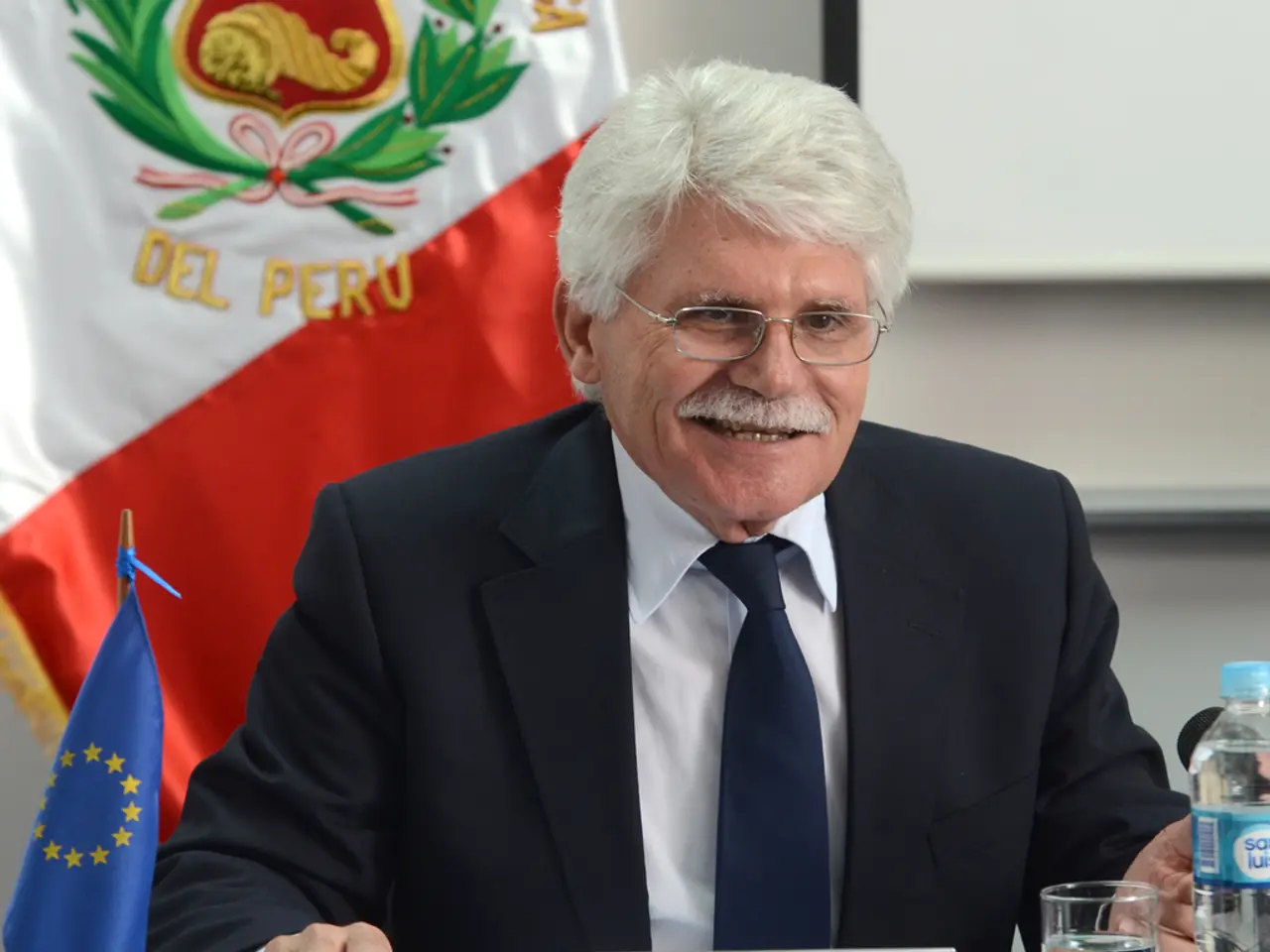Peru's president grants military crimes pardon through the approval of a bill into law
In August 2025, President Dina Boluarte signed a contentious amnesty law, granting blanket immunity to military, police, and security forces accused of human rights violations during Peru's internal armed conflict from 1980 to 2000. This conflict involved the government and rebel groups like Shining Path and Tupac Amaru.
The law has sparked outrage from human rights organizations, the United Nations, and victims' families. Critics argue that the law obstructs justice by preventing accountability and prosecution of those responsible for abuses, denying victims and their families truth, justice, reparations, and guarantees of non-recurrence.
Key points of contention include:
- The amnesty covers all members of the security forces implicated in abuses during the conflict, despite ongoing investigations and prosecutions.
- The internal conflict resulted in approximately 70,000 deaths and disappearances, with widespread abuses committed by both state security forces and rebel groups.
- Victims’ families and human rights advocates see the law as protecting perpetrators rather than promoting justice and reconciliation.
- The United Nations human rights chief called the law an "affront to victims" as it undermines their rights to truth and reparations.
- The law benefits uniformed personnel on trial but not yet convicted of crimes committed during fighting against the Shining Path and Tupac Amaru rebel groups.
- Approximately 20,000 people remain listed as "disappeared."
The amnesty law has also been criticized for undermining decades of efforts to ensure accountability for atrocities and weakening the country's rule of law even further. A report by UN experts urged Boluarte's government to veto the law, arguing that Peru has a duty to investigate, prosecute, and punish gross human rights violations and crimes under international law committed during the conflict.
The Inter-American Court of Human Rights (IACHR) has also urged Peru to immediately suspend or refrain from applying the law. The statute of limitations for crimes against humanity committed before 2002 was adopted in August 2024, halting hundreds of investigations into alleged crimes committed during the fighting.
The amnesty law is not without its supporters, however. Some argue that it is necessary to promote reconciliation and move forward from the decades-long conflict. President Boluarte has rejected all criticism of the amnesty law, stating that it is in tribute to military and self-defense groups involved in the fight against terrorism.
The initiative has also benefited late president Alberto Fujimori, who was released from prison in 2023 on humanitarian grounds and died in September 2024. Fujimori was jailed for atrocities, including the massacre of civilians by the army. The new law could affect 156 decided cases and more than 600 cases still underway over crimes committed during the 20-year span.
As the controversy surrounding the amnesty law continues, the international community and human rights organizations will closely monitor Peru's actions to ensure that justice is served for the victims of the internal armed conflict.
[1] Human Rights Watch. (2025). Peru: Amnesty Law Betrays Victims. [online] Available at: https://www.hrw.org/news/2025/08/26/peru-amnesty-law-betrays-victims
[2] United Nations. (2025). UN Experts Urge Peru to Veto Amnesty Law. [online] Available at: https://www.un.org/news/press/en/2025/hr-n-2025-072.html
[3] Amnesty International. (2025). Peru: Amnesty Law Threatens Justice and Human Rights. [online] Available at: https://www.amnesty.org/en/latest/news/2025/08/peru-amnesty-law-threatens-justice-and-human-rights/
[4] BBC News. (2025). Peru Adopts Amnesty Law for Military over Human Rights Abuses. [online] Available at: https://www.bbc.com/news/world-latin-america-58396580
- The United Nations human rights chief has decried the amnesty law in Peru as an "affront to victims," stating that it undermines their rights to truth, justice, reparations, and guarantees of non-recurrence, particularly for atrocities committed during the internal armed conflict from 1980 to 2000.
- The amnesty law, which grants blanket immunity to military, police, and security forces accused of human rights violations during the conflict, has been met with criticism from various quarters, including human rights organizations such as Amnesty International and Human Rights Watch, who argue that it obstructs justice by preventing accountability and prosecution of those responsible for abuses.
- The international community and several political bodies, including the Inter-American Court of Human Rights (IACHR) and United Nations experts, have urged Peru to suspend or refrain from applying the amnesty law, citing concerns that it weakens the country's rule of law, undermines decades of efforts to ensure accountability for atrocities, and inhibits the pursuit of justice in war-and-conflicts, crime-and-justice, and general-news spheres.





